Manufactured homes, once known as mobile homes, can offer homeowners flexibility and a lower price than traditional houses or condos. Here are the ins and outs of choosing a manufactured home and the associated costs.
What Is a Manufactured Home?
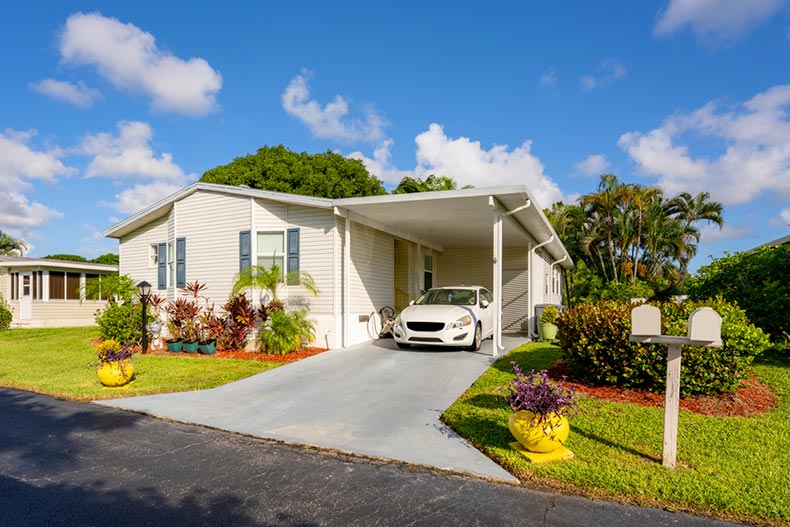
Manufactured homes are sometimes confused with modular homes. Both types of homes are manufactured off-site and transported to the homeowner’s location. But, a modular home is put together and placed on a permanent foundation. A manufactured home rests on a steel chassis; two wheels allow the home to be towed to its destination. The wheels can be moved, but the chassis ensures the home can be transported again in the future.
Manufactured homes are at least 320 square feet. The U.S. Department of Housing and Urban Development (HUD) oversees the construction of this type of home. The average price of a new manufactured home was $88,200 in August 2020, according to data from the U.S. Census Bureau.
Finding a Place for Your Home
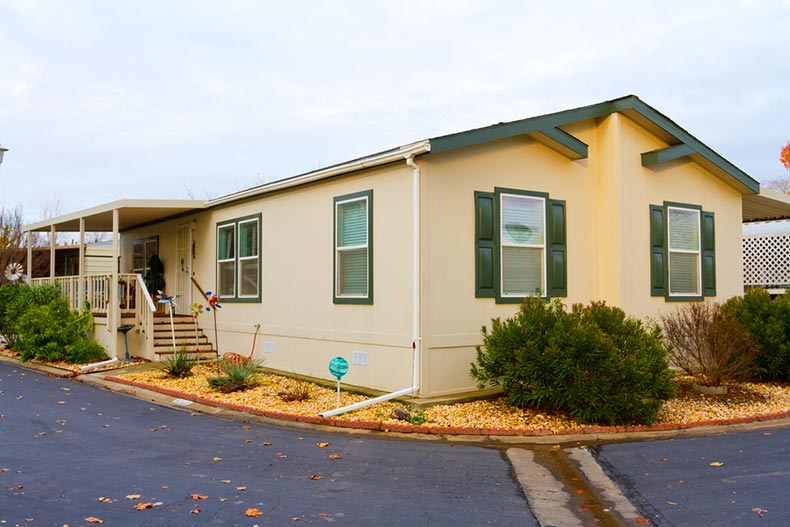
A manufactured home will be delivered to you, which gives you the opportunity to select the site of your future home. You have the option of buying a piece of land or leasing land in a community for manufactured homes. Buying land will involve a higher upfront cost than leasing. Land in a rural area, available for lease or purchase, will likely be more available and less expensive than land located in an urban area.
When choosing a location for your manufactured home, it’s important to consider the set-up requirements ahead of you. Is there anything on the property–such as trees or water sources–that will make delivery more difficult? Does the location adhere to all local zoning and permitting requirements?
Arranging Transportation
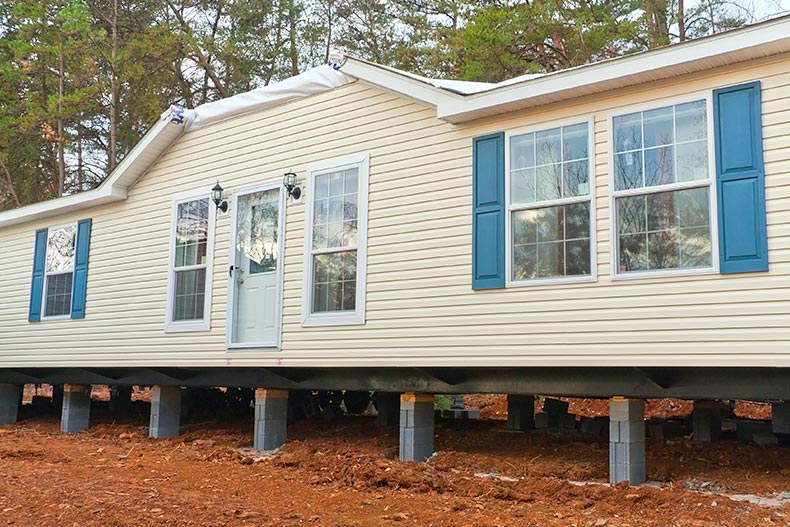
Your manufactured home will be constructed either in full or in parts somewhere other than where you plan to live. This means you will need to arrange for delivery. The retailer you purchase the home from will likely offer you the option to pay for delivery.
The delivery price will depend on a few factors, like the size of the manufactured home and the distance it needs to travel. If your home’s journey is less than 100 miles, you can expect transportation to cost between $2,000 and $5,000, according to SFGATE. If your home will need to travel more than 100 miles, the cost can go up considerably; the price is typically determined on a per mile rate.
Installing Your Home and Setting Up Utilities
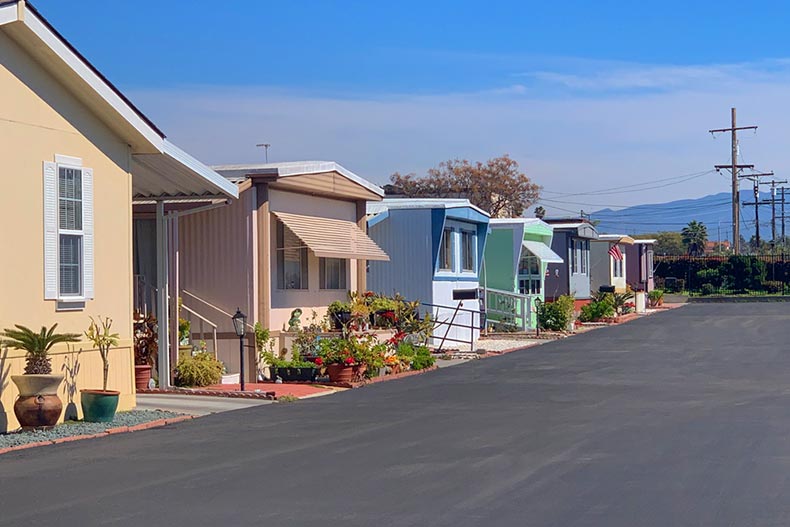
Once your home arrives at the site you have selected, you will have set-up costs to consider. The home needs plumbing, electricity, and some kind of HVAC system.
Beyond the utility setup, you also need to think about how to secure the manufactured home. A permanent foundation is an option for people who do not expect to move their home again, but it is likely more costly. Manufactured homeowners can also opt for non-permanent foundations, such as a surface set pad foundation or support piers. Manufactured home set-up costs can range from $1,000 to $5,000, according to the SFGATE report.
Paying Taxes and Insurance

A manufactured home may be different than a traditional home, but you still need to pay taxes. The tax rate and how the manufactured home is treated (as personal property or real estate) will depend on the state in which you reside and how the home is set up.
Purchasing insurance is also an important consideration for manufactured homeowners. Like insuring any home, the price will depend on where the home is located and what it would cost to replace the home. You can typically expect to pay between $500 and $1,100 per year for manufactured home insurance, according to NerdWallet.
Financing a Manufactured Home
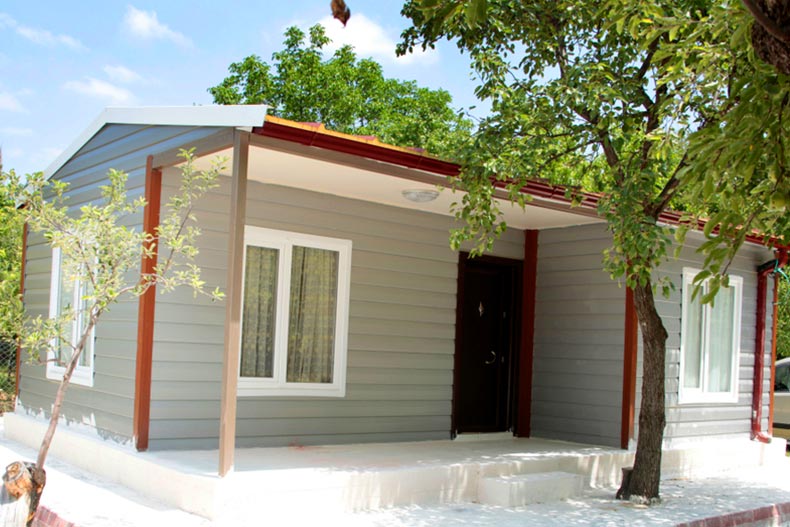
Buying a manufactured home can be a little different than purchasing a traditional home. You do have the option of purchasing a brand new home or buying a pre-owned home. And, you do have the option of paying for the home in cash or you can explore financing options.
Some people may be eligible for government-issued loans, such as those offered by the Federal Housing Administration (FHA) or Veterans Administration (VA). You can also discuss mortgage options with lenders, such as a Fannie Mae mortgage or Freddie Mac mortgage, according to Bankrate. Some people may be able to opt for taking out a personal loan to finance the purchase of a manufactured home.
If you decide that a manufactured home is right for you, keep in mind all of the associated costs and get ready by finding where you’d like to set up your home.







